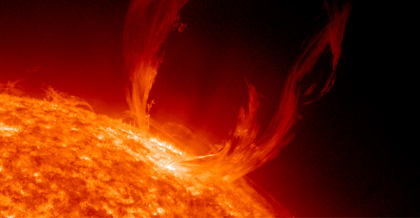Diagnostics
Diagnostics are the eyes and ears of fusion reactors. They return vital parameters such as the temperature, the density, the impurity content, the magnetic field et cetera. A distinction can be made between active and passive diagnostics (the former requiring the injection of light beams, particles, or probes, while the latter is based on the observation of radiation and particles emitted spontaneously by the plasma). Below follows a list of different diagnostics, together with their main measurement parameters.

| Name | Abbreviation | Measurement parameters |
|---|---|---|
| Thomson Scattering | TS | Electron temperature , electron density |
| Charge Exchange Recombination Spectroscopy | CXRS, CXS, CHERS, CER | Ion temperature , toroidal and poloidal plasma rotation velocity , , impurity density |
| Motional Stark Effect | MSE | Magnetic pitch angle |
| Electron Cyclotron Emission | ECE, ECEi | Electron temperature , electron temperature fluctuations (turbulence) |
| Soft X-Ray Emission | SXR | A combination of electron temperature , electron density , and effective charge |
| Mirnov coils, pickup coils | - | magnetic field components and fluctuations (outside plasma) |
| Heavy Ion Beam Probe | HIBP | Electron density , plasma potential See TJ-II:Heavy Ion Beam Probe |
| Interferometry | - | Electron density (line integral) |
| Polarimetry | - | Magnetic field pitch (line integral) |
| Reflectometry | - | Electron density (edge profile, fluctuations) |
A special bi-annual conference on fusion diagnostics is held in the U.S.: The Topical Conference on High Temperature Plasma Diagnostics (HTPD)
References
- I.H. Hutchinson, Principles of Plasma Diagnostics, Cambridge University Press; 2nd edition (2002) ISBN 978-0521803892